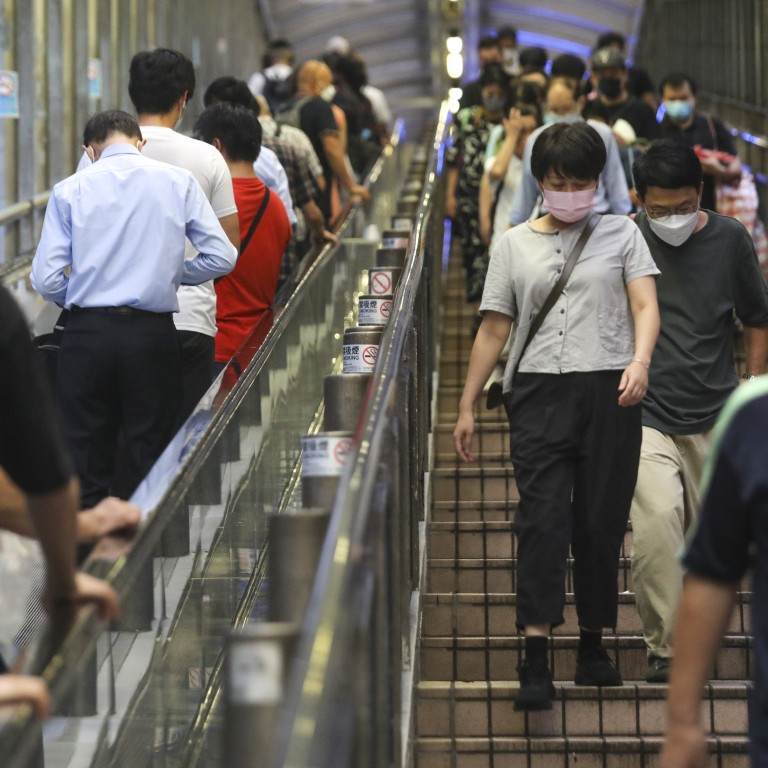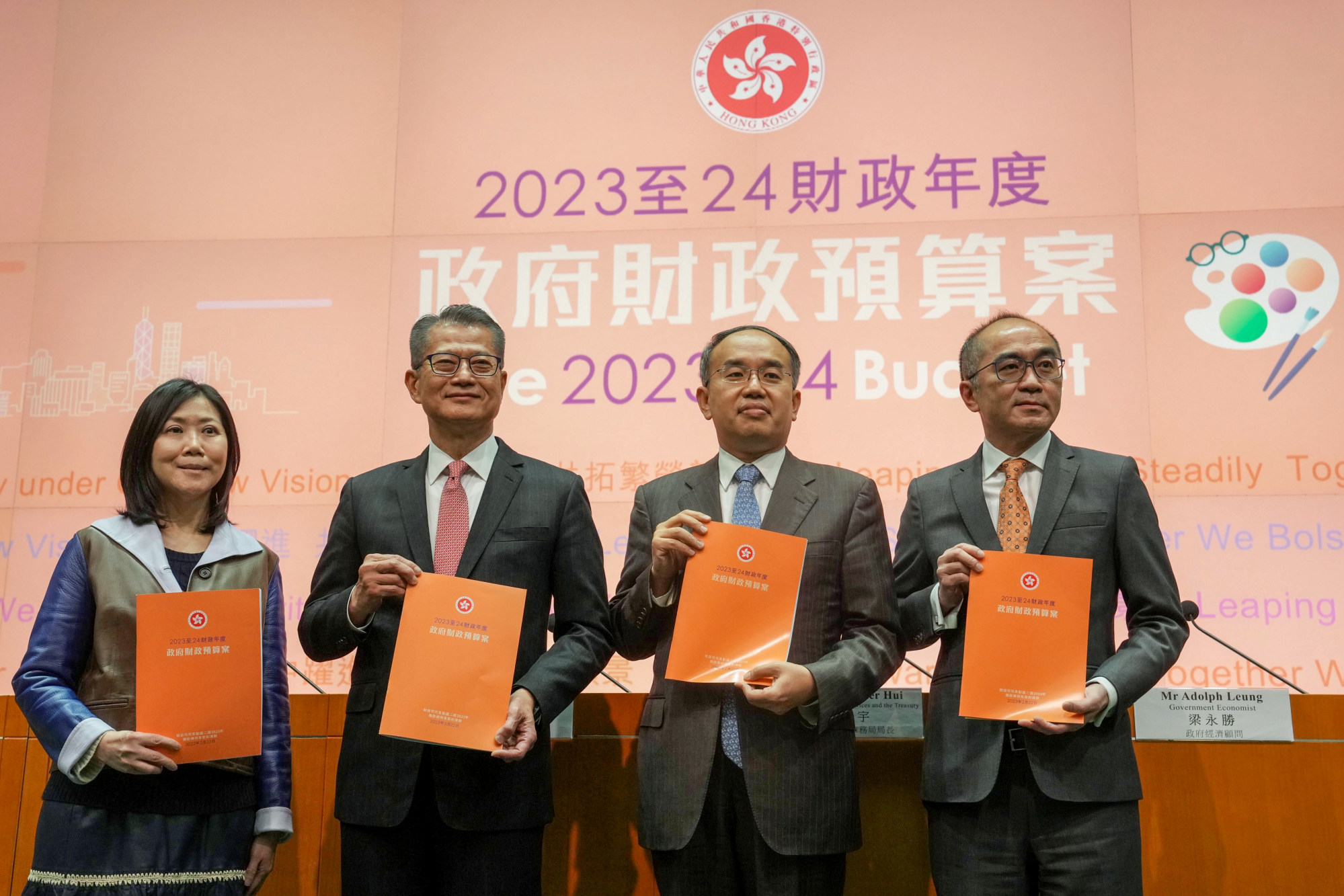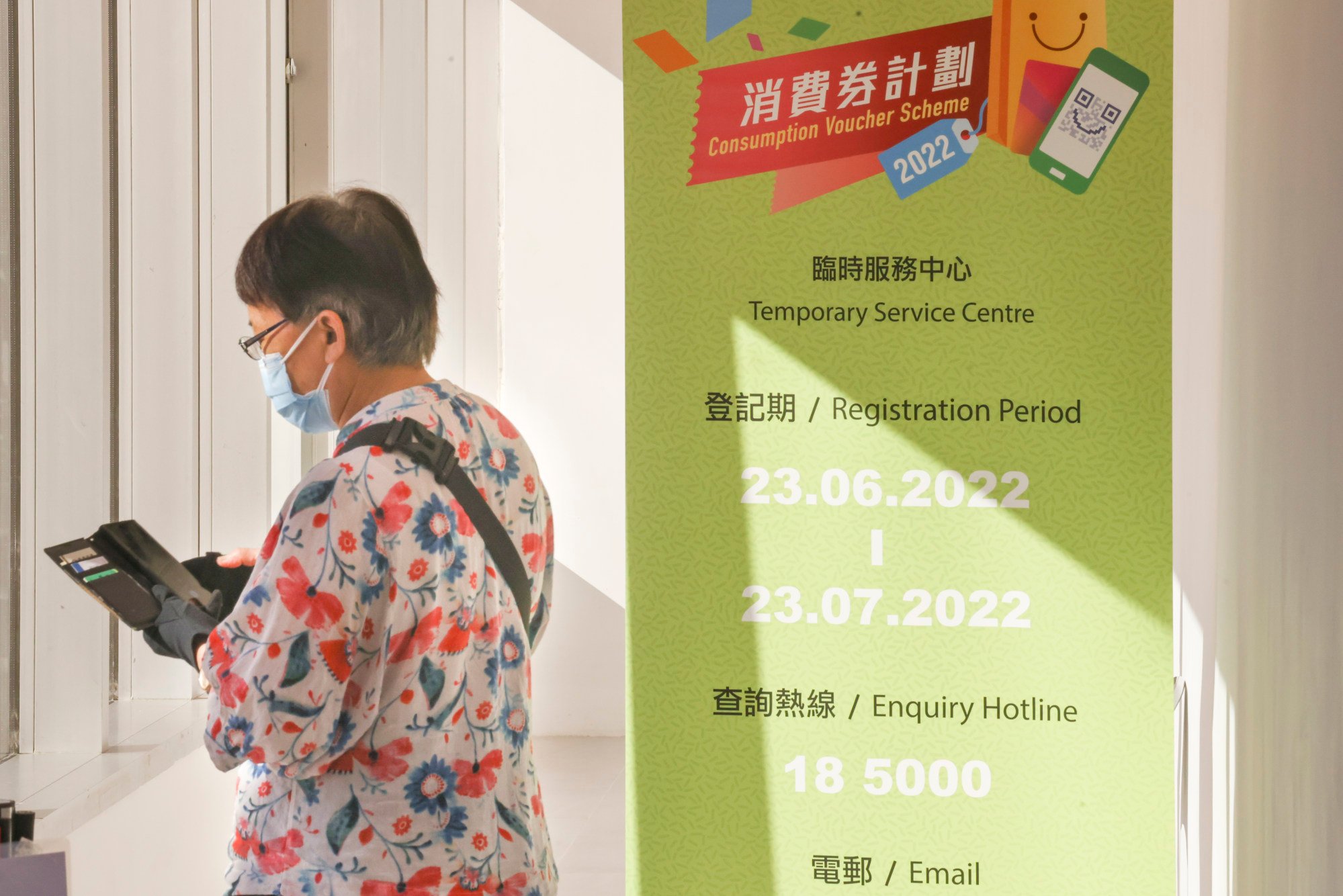
Budget 2023-24: ‘Happy Hong Kong’, tax breaks and an eye on sin – 6 takeaways from Paul Chan’s latest financial blueprint
- Financial secretary sets sights on higher taxes for smokers, while Hong Kong Jockey Club will pay an increased betting duty
- Chan also unveils cheaper stamp duty for permanent residents buying small to medium-sized flats for first time
Financial Secretary Paul Chan Mo-po unveiled his annual budget blueprint for Hong Kong on Wednesday with the city seeking to recover from the Covid doldrums, as he spelled out his “moderately liberal” fiscal stance for the coming financial year.
Against the backdrop of a contracting economy and sluggish home sales in the past year, Chan announced modest tax breaks, a tweak to the stamp duty for first-time homebuyers, and another round of consumption vouchers, but in smaller sums.
With immediate effect, smokers are being levied higher taxes while Chan also went after sports wagering with the imposition of a higher betting duty on the Hong Kong Jockey Club. The financial secretary left salary and profit tax rates unchanged.
He also mapped out his plan to lure overseas enterprises and talent, as well as steer the city towards profitable green technologies.
Here are six key takeaways from the latest budget address:

Tax breaks and stamp duty tweaks
To alleviate the public’s burden, Chan announced – much like in previous years – a reduction in salaries tax by 100 per cent, subject to a ceiling of HK$6,000 (US$765), as well as a subsidy of HK$1,000 on electricity. But the latest salary tax ceiling is much less than the HK$10,000 announced last year.
Property owners will also get a rate concession, with the tax assessed discounted by HK$1,000 per quarter for each property for only two quarters.
Flat owners last year were given a rate concession for the whole year, subject to a ceiling of HK$1,500 per quarter during the first half of that year and HK$1,000 for the remaining quarters.
While stressing the “spicy” 15 per cent stamp duty – previously imposed to cool down property prices – for overseas buyers would remain, Chan unveiled a relief measure for permanent residents buying small to medium-sized flats for the first time.
Chan needs to make correct diagnosis in Hong Kong’s post-Covid budget
Qualified homebuyers will end up paying a cheaper rate if they buy a home valued at less than HK$9 million.
The most extreme example will be for those hoping to scoop up what are known as nano flats in the city, usually studio homes consisting of less than 300 sq ft of floor space, in which buyers will only be charged HK$100 rather than the previous rate of 1.5 per cent of the value of the flat if it is priced between more than HK$2 million and HK$3 million.
Those getting a flat priced at HK$9 million will be paying a 3 per cent rate as opposed to the 3.75 per cent previously.
But buyers of properties that cost between more than HK$9 million and HK$20 million will be paying the same rate of 3.75 per cent.

Heavy on sin
With a goal to cut the smoking rate from 9.5 per cent to 7.8 per cent by 2025, the finance minister increased the tobacco duty by 60 HK cents per cigarette with immediate effect.
A pack of cigarettes is estimated to cost more than HK$70 under the new measure, up from the current HK$60. Duties on other tobacco products will also be increased by the same proportion.
Meanwhile, the Hong Kong Jockey Club (HKJC), the city’s non-profit body that provides racing, sporting and betting entertainment, will face an annual special football betting duty of HK$2.4 billion (US$306 million) for five consecutive years starting from this financial year.
Chan said the club had undertaken not to reduce donations, but the sole operator of gambling business in the city expressed “strong reservations” in a subsequent statement, saying it would incur an extra HK$12 billion in betting duty.
The club has yet to say whether it will transfer the new financial burden, or at least some of it, to gamblers.
Hong Kong budget: spending vouchers, lower stamp duty, higher sin taxes
‘Happy Hong Kong’ and more consumer vouchers
Shortly after launching the “Hello Hong Kong” to lure tourists and investors to the city with hundreds of thousands of free flight tickets and an advert featuring a warm welcome from Chief Executive John Lee Ka-chiu, Chan on Thursday introduced a new campaign: “Happy Hong Kong”.
The finance minister said “Happy Hong Kong” would focus on residents and include a raft of events, such as a gourmet festival and a mega carnival over sea and land.
Chan also announced another round of HK$5,000 consumer vouchers to boost spending, which would only be half the amount disbursed last year, explaining he had taken into consideration the “current economic situation, people’s livelihood and the government’s financial position”.
Non-Hong Kong residents living in the city under various visas will receive HK$2,500 in the next round.

Luring overseas talent and businesses
Hong Kong also unveiled its Capital Investment Entrant Scheme, which gives those investing in the local asset market a chance to move to the city. The initiative will work in tandem with other recent policies aiming to attract professionals and top university graduates.
Chan also vowed to nurture talent, especially in sectors such as financial services, logistics, innovation and technology, as well as construction.
The government will launch a fintech internship scheme for post secondary students, which will offer subsidies for those based in Hong Kong and the Greater Bay Area.

The bay area refers to Beijing’s ambitious initiative to link Hong Kong, Macau and nine southern Chinese cities into an innovation hub.
Chan said authorities would inject HK$200 million into the Maritime and Aviation Training Fund to provide training and smart logistics, in addition to launching a new trainee programme for those pursuing a career in maritime law.
The finance chief added he would set aside HK$100 million for InvestHK over the next three years to support family offices, referring to business entities set up to manage the wealth and affairs of high-net-worth families.
Hong Kong stocks face technical correction as city reins in budget freebies
Green technology and innovation
Chan used the word “green” 40 times during his speech, referring to environmental technology.
He pledged to build a green technology ecosystem to attract top-notch enterprises and start-ups to establish operations in the city, as well as offering training for talent. Chan also vowed to augment the degree of exchange and cooperation between the Greater Bay Area and international markets.
A Green Technology and Finance Development Committee would be formed to promote the city’s transformation into an international green technology and finance centre, he said.
Chan also touted the government’s success in issuing HK$800 million in tokenised green bonds last week, adding it would issue HK$15 billion in retail green bonds during the next financial year.
Fresh round of cash handouts in Hong Kong budget but some taxes will also go up
A portion of the government’s green bonds will also be included as an option for funds under the Mandatory Provident Fund (MPF).
A total of HK$50 million would be earmarked for boosting development of Web 3.0, the decentralised third generation of the World Wide Web, with the policy including popular fields such as blockchain technology and cryptocurrencies, he said.
Chan added the government would support the establishment of a Microelectronics Research and Development Institute to promote the field’s development in Hong Kong.

Helping residents of all ages
The financial secretary said the Pilot Scheme on Community Care Service Voucher for the Elderly had also received the green light to fully launch this year and aimed to increase its coverage from 8,000 residents to 12,000 in 2025-26.
The annual number of elderly patients covered by the Hospital Authority’s Integrated Discharge Support Programme would also be increased from 33,000 to 45,000 during this year’s third quarter, Chan said.
The programme provides a range of support services, including discharge planning, home care and carer training, with the aim of reducing the risk of unplanned hospital readmissions.
Elderly Hongkongers flood emergency hotline as cold weather grips city
He also proposed increasing the tax deductions offered under MPF contributions made by employers to 200 per cent from the 100 per cent to encourage the employment of those aged 65, which is the city’s retirement age, and above.
To support Hong Kong’s young generation, Chan proposed increasing the basic child allowance and additional child allowance for parents from HK$120,000 to HK$130,000 beginning from 2023-24. The move is estimated to benefit 324,000 taxpayers and reduce tax revenue by HK$610 million each year.



